Highlights
Events build awareness for National Quantum-Safe Network
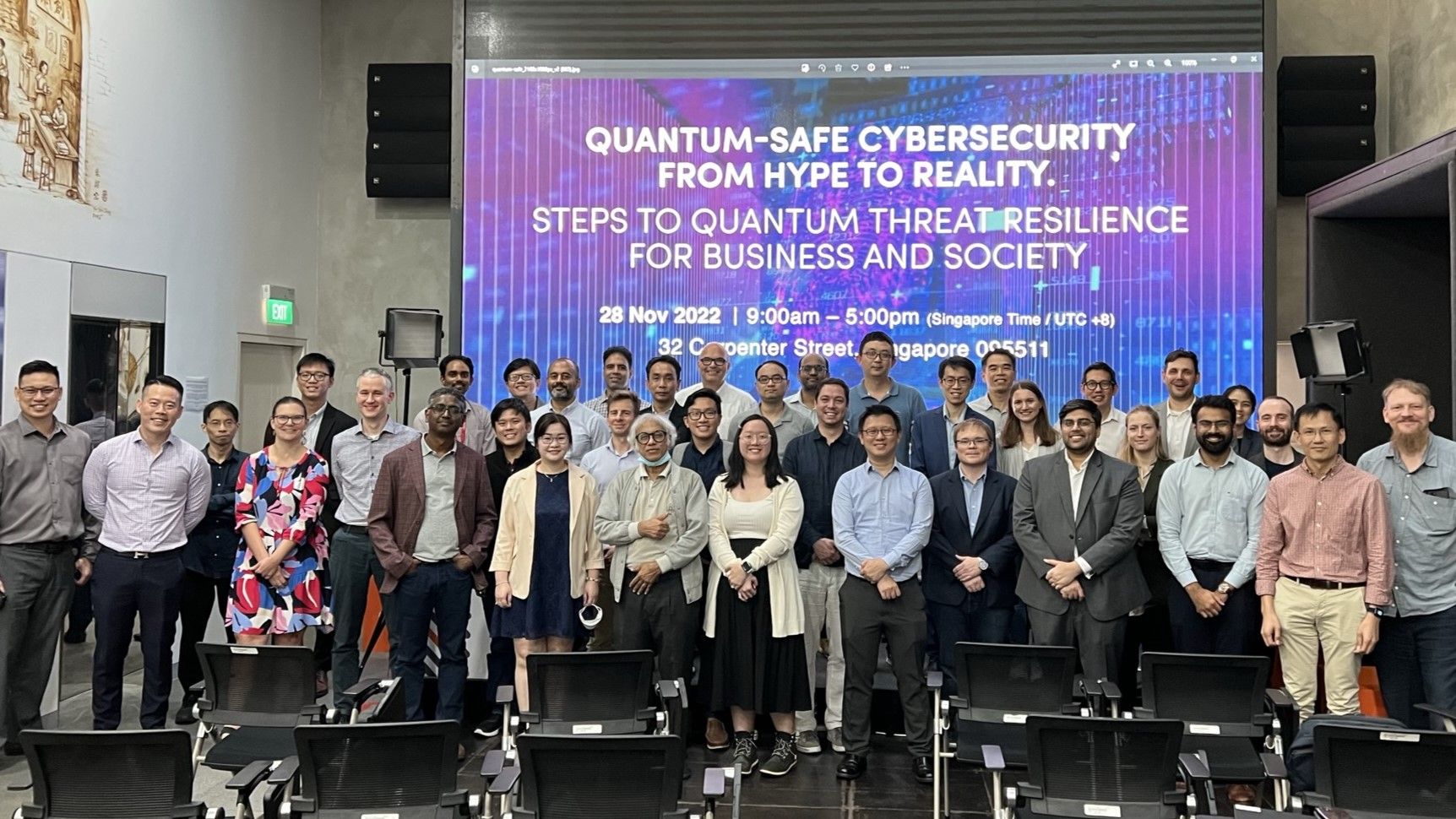 At one event, delegates took part in a full- day programme of talks and networking around quantum threat resilience
At one event, delegates took part in a full- day programme of talks and networking around quantum threat resilience
The National Quantum-Safe Network (NQSN) closed 2022 with two workshops to share expertise and advance action towards communications infrastructure that is resistant to the threat of quantum computing. Most recently, the team presented on their plans and achievements so far at the inaugural Singapore Quantum Industry Day, held 10 February and organised by the National Quantum Office.
NQSN is a national platform launched by Singapore’s Quantum Engineering Programme and supported by a team at the Centre for Quantum Technologies (CQT). The team is working with government and private partners to perform field trials of quantum-key distribution (QKD) and post-quantum cryptography.
Towards standards with ITU
Back in November, the NQSN co-hosted with Singapore’s Infocomm Media Development Authority (IMDA) a workshop organised by the International Telecommunication Union (ITU) on "Quantum key distribution protocols, security and certification".
ITU is the United Nations specialised agency for information and communication technologies. Its global membership includes 193 Member States and over 900 companies, universities, and international and regional organisations. One of ITU’s major roles is developing international technical standards, and its standards for quantum-key distribution (QKD) networks address aspects from architecture to key management and security.
The half-day, hybrid event on 8 November had speakers from China, South Korea, Singapore, Japan, and Europe from a range of backgrounds including academic, industry, and standards and certification organisations. IMDA’s Director of Standards Development and Regulatory Technology, Woon Hau Chin, gave opening remarks.
“This workshop was the first time ITU has held discussions on QKD protocols in Singapore and South-East Asia. QKD protocols have been identified as a standardisation gap. The workshop aimed to gather opinions from different perspectives and build up common understanding on QKD protocols to support standardisation and certification work at an international scale,” says Hao Qin, Quantum Communications Technologist with NQSN and moderator for the workshop.
Altogether, some 130 people worldwide registered to participate. Slides and recordings of the talks have been made available at the ITU website.
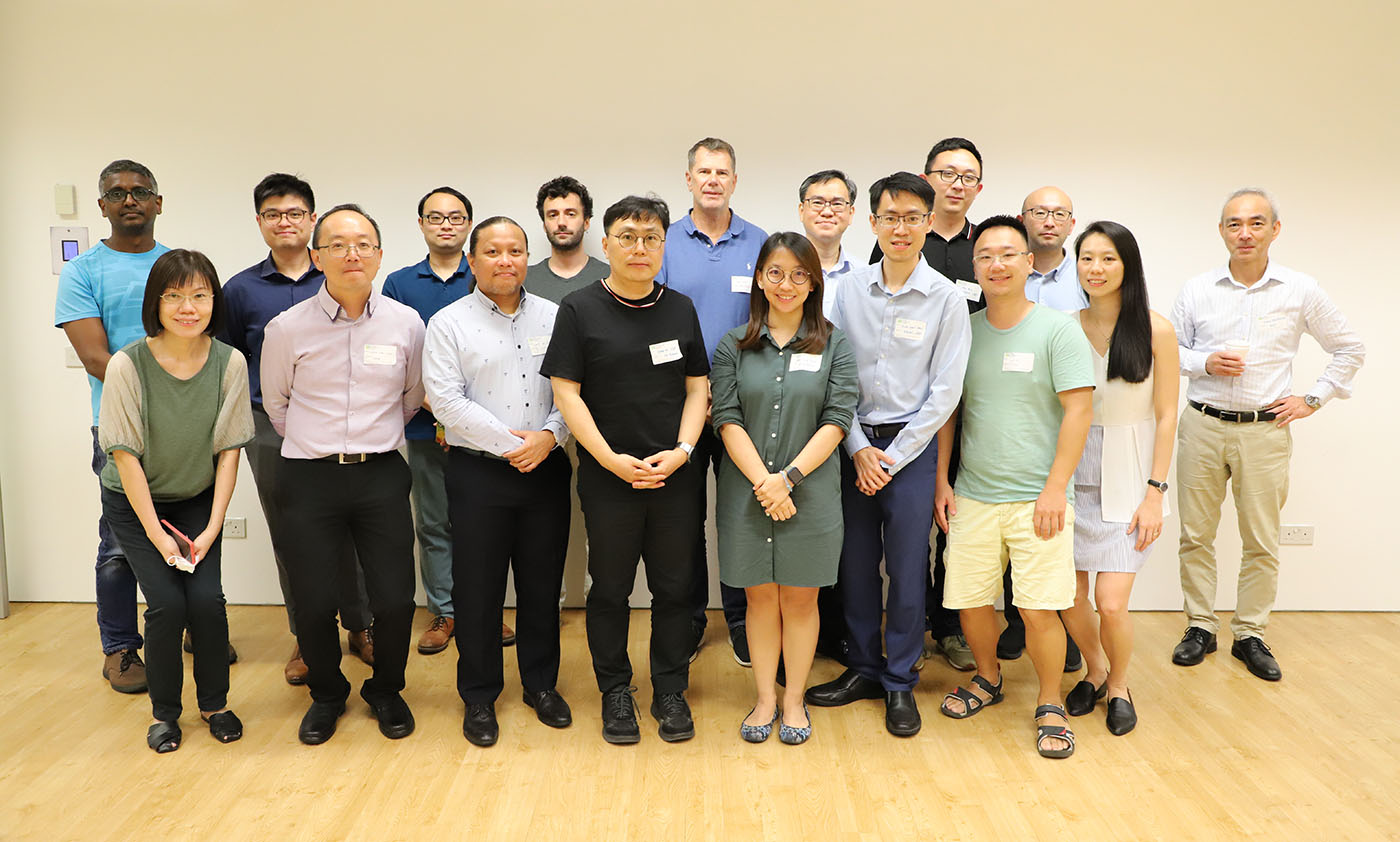 In-person attendees at the workshop by the International Telecommunication Union (ITU) on "Quantum key distribution protocols, security and certification"
In-person attendees at the workshop by the International Telecommunication Union (ITU) on "Quantum key distribution protocols, security and certification"
The workshop was followed by a discussion over two days among experts that form an ITU standardisation working group on “Security for/by emerging technologies including quantum-based security”. This ITU Question 15/17 Rapporteur Group Meeting was held 9-10 November in CQT.
Urging action
A second event on 28 November focused on “Quantum-safe cybersecurity from hype to reality – steps to quantum threat resilience for business and society”.
Chaired by NQSN co-coordinator Michael Kasper, CEO at Fraunhofer Singapore, and NQSN Principal Investigator Christian Kurtisefer, a CQT PI, the full-day, in-person programme featured talks from local and international experts.
Keynote speaker Michele Mosca from the University Waterloo, Canada, and co-founder and CEO of evolutionQ, suggested the community should treat preparation for “collapse time” as a marathon.
He defined collapse time as the point when a large enough quantum computer exists to break today’s standard encryption schemes. Experts predict a range of timelines from 5 to more than 30 years, such that data needing longer privacy should already have additional layers of protection.
Heike Hagemeier presenting from the Federal Office for Information Security, BSI, Germany, said the organisation’s working hypothesis was that a cryptographically relevant quantum computer will be available by the early 2030s. This view is set out in a report published by the office in May 2022.
Other talks dove into details of quantum key distribution and post-quantum cryptography as potential solutions for quantum safeness, and the security aspects therein. Christian, Hao Qin and Jing Yan Haw, who is also from the NQSN team at CQT, gave presentations.
This event was presented in partnership with SGInnovate, Fraunhofer Singapore, the German Embassy, Singapore, and the Infocomm Media Development Authority. Germany’s Ambassador to Singapore Dr Norbert Riedel gave a welcoming address.
Related Stories
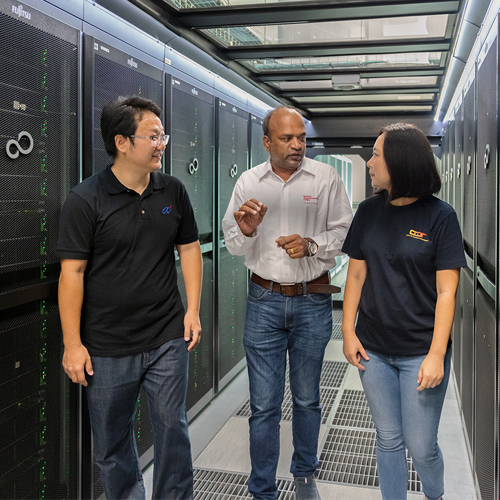 | Singapore’s quantum ecosystem gets a boost from three national platforms May 31 2022 |
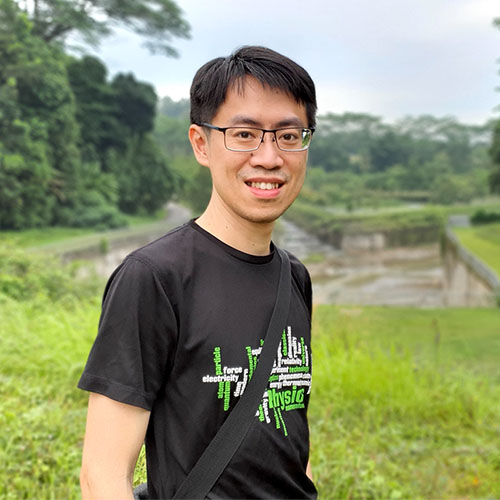 | Meet a CQTian: Haw Jing Yan November 24 2022 |
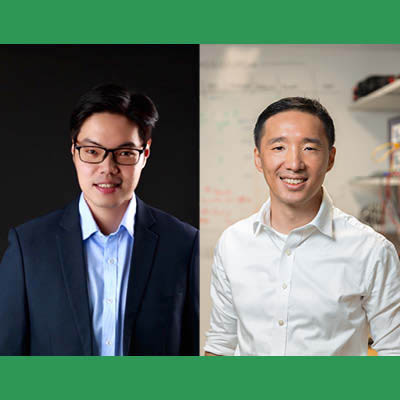 | Leadership in quantum-safe networking August 08 2022 |






